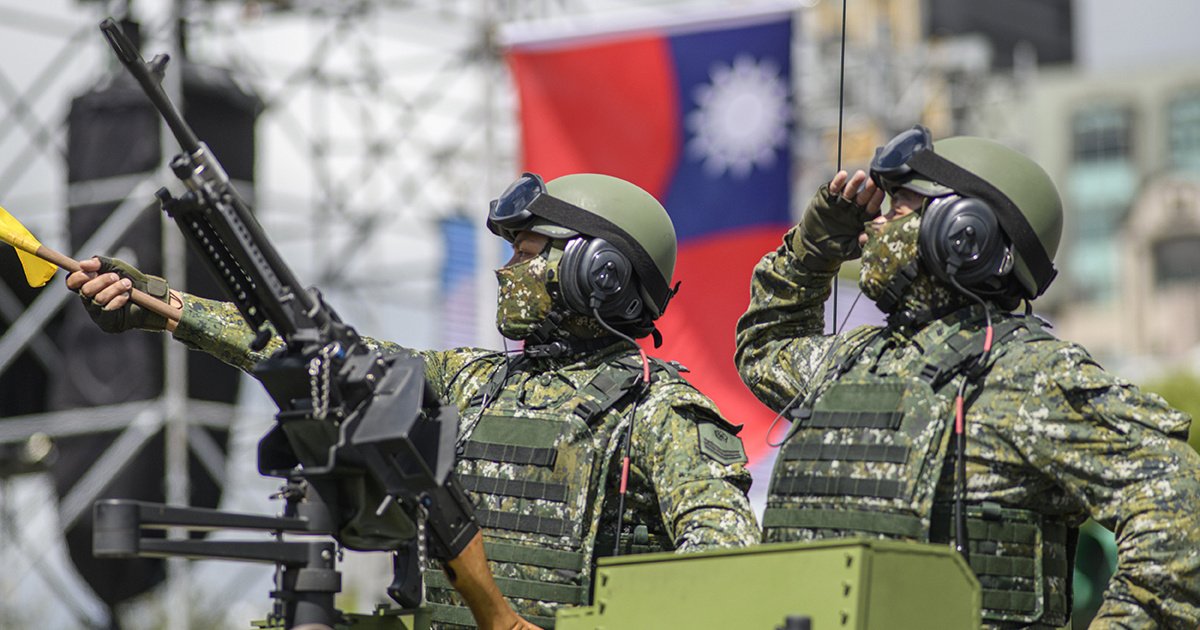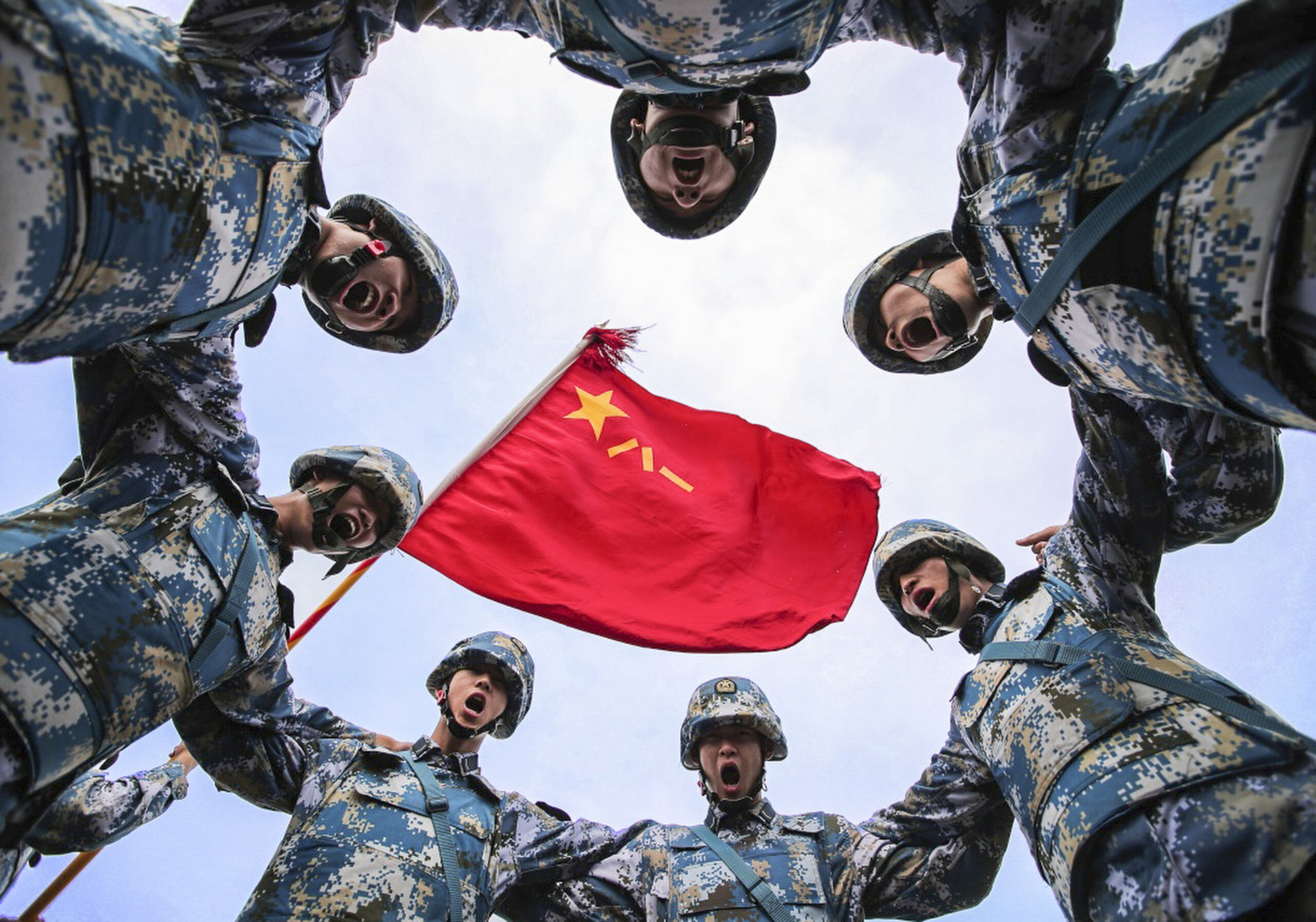by Martin Haffner Associate Editor
TAIPEI (Taiwan News) — Taiwan has made great strides in civil defense under President Lai Ching-te (賴清德), but more must be done to ensure national resilience as the threat of a Chinese attack grows.
The war in Ukraine has highlighted the importance of civilian support during a conflict. Civilians can assist in an emergency or disaster and act as an auxiliary armed force if necessary. According to a RAND report on Ukraine, locals used informal networks and high-level coordination to carry out humanitarian aid, computer hacking, and communication.
A well-trained and equipped civil defense would help Taiwan as it bolsters combat readiness and faces military recruitment challenges.
Changing tack
With Taiwan’s security in mind, Lai established the National Whole-of-Society Resilience Committee in June to prepare for regional aggression and disaster response. The committee will enhance training and expand civilian forces to protect vital infrastructure and form supply distribution systems, the Presidential Office said.
During a joint civil-military air defense exercise in July, text alerts were sent to people’s phones including information about nearby air raid shelters. Local governments and civil defense organizations also conducted a separate drill setting up wartime relief and shelter centers.
In September, Lai reaffirmed his commitment to protecting Taiwan’s sovereignty. He said the government seeks to boost civil defense capabilities so that the public has the necessary know-how and skills to protect themselves and the country. He added that authorities and organizations at all levels are actively improving civil defense and natural disaster response.
According to Lai, the Whole-of-Society Defense Resilience Committee will convene every three months.
The Presidential Office held its first tabletop exercise in December, simulating escalated Chinese belligerence towards Taiwan. The three-hour-long exercise gathered central and local government agencies and civil groups to test how they would respond to renewed threats from Beijing.
In a press conference, Interior Minister Liu Shyh-fang (劉世芳) said the government seeks to train more than 50,000 emergency response volunteers by next year. It also hopes to utilize public sector personnel such as taxi drivers and security guards in an emergency.
Government agencies have been asked to build backup systems and formulate plans in case of a government shutdown, Liu added.
Lai has also announced plans to combine the Wan An and Min An civil-military drills into joint “urban resilience exercises” beginning in 2025. These drills will integrate disaster prevention and civil defense measures. Though they will be based on predetermined conditions, no fixed scripts will be used, according to National Security Council Deputy Secretary-General Lin Fei-fan (林飛帆).
The president’s measures in his term undoubtedly pave the way for a robust civil defense. However, certain issues must be addressed for a reliable civilian force.
Challenges ahead
The National Police Agency’s Civil Defense Office responds to military attacks and natural disasters. However, there is low morale due to the lack of clear mission goals and poor training. The CDO’s current force mostly comprises men between ages 50 and 70, who reportedly train only four hours per year, according to Global Taiwan Institute Executive Director Russell Hsiao.
The rigid structure of the CDO is also problematic. Analyst Leo Lin wrote in an East Asia Forum report that having the CDO under the NPA “limits collaboration with other departments.” This prevents the office from addressing local requirements and adapting to different situations, Lin said. He also pointed out the insufficient training budgets that overlook community needs “such as population density or local infrastructure.”
This is a major concern, as it leaves Taiwanese underprepared for emergencies. The government should overhaul training to include response plans to current challenges.
Ian Murphy, a China expert at SecuriFense Inc., recommended Taiwan focus on training in first aid, communications, and countering disinformation. “Broadening civil defense participation and modernizing volunteer capabilities aims to prepare society physically and mentally for crises,” he said.
To address recruitment problems, Murphy said outreach campaigns could underscore the importance of service and attract young Taiwanese by promoting skills that would lead to future career opportunities.
Lin urged Taiwan to continuously revise the volunteer selection process. Echoing Murphy, he also said the government should use “effective messaging as well as incentives” to get more people to join local civil defense groups.
Promising future
NGOs like Kuma Academy and Forward Alliance have proven that the Taiwanese care about civil defense and are willing to undergo training to protect their country.
Kuma Academy, founded in 2021, has held numerous disaster response drills in the past few years, bringing civil defense to the forefront. It held a nine-day “Stand Up as Taiwan” relay march promoting civil defense in November, attracting more than 50 activist groups.
During a September National Disaster Prevention Day drill, participants learned how to respond to large-scale disasters. They drew “scenario cards” that placed them in various situations, forcing them to devise solutions on the spot.
Kuma Academy opened a new base in Changhua’s Erlin Township that same month to teach basic military tactics, information warfare, emergency rescue, and evacuation planning.
Forward Alliance has also significantly contributed to sparking public interest in civil defense. In September, it collaborated with US nonprofit Spirit of America to hold a large-scale emergency preparedness drill in Taipei. Teams focused on tasks including search and rescue, medical care, and providing shelter for the injured.
The Taiwan government needs to harness the public’s patriotism and concern as it plans more effective policies to build up civil defense.



